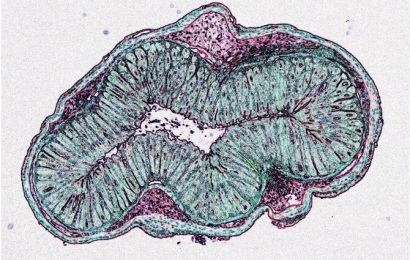NEW YORK (Reuters Health) – Anakinra may improve prognosis in hospitalized COVID-19 patients who have evidence of a significant inflammatory response, according to results of a systematic review and patient-level meta-analysis.
Anakinra is a recombinant interleukin-1 (IL-1) receptor antagonist that blocks both IL-1-alpha and IL-1-beta used in the treatment of hyperinflammatory syndromes and has reported benefit in patients with septicemia.
Prior evidence from a small number of patients with moderate or severe COVID-19 treated with anakinra has suggested some benefit.
“This study is, to our knowledge, the first patient-level meta-analysis to analyse the effects of anakinra treatment in patients admitted to hospital with moderate to severe COVID-19,” researchers write in The Lancet Rheumatology.
“Most importantly, this study identifies a subgroup of patients who might benefit most from treatment with anakinra: those with C-reactive protein (CRP) concentrations higher than 100 mg/L,” write Dr. Evangelos J. Giamarellos-Bourboulis of ATTIKON University Hospital, in Athens, and colleagues.
The study team analyzed aggregate data on 1,185 patients from nine studies – eight were observational and one a randomized controlled trial – and individual patient-level data from 895 patients from six of these studies. The primary outcome was mortality after 28 days and a secondary outcome of safety.
After adjusting for relevant cofactors, mortality was significantly lower in people treated with anakinra than in those receiving standard of care or placebo (11% vs. 25%; adjusted odds ratio, 0.32; 95% confidence interval, 0.20 to 0.51).
The mortality benefit was similar across subgroups regardless of comorbidities (diabetes) and other factors such as ferritin concentrations and baseline PaO2/FiO2. However, anakinra was significantly more effective in lowering mortality in patients with CRP concentrations above 100 mg/L (OR 0.28; 95% CI, 0.17 to 0.47).
Anakinra showed a significant survival benefit when given without dexamethasone (OR, 0.23), but not with dexamethasone co-administration (OR 0.72).
Anakinra was not associated with a significantly increased risk of secondary infections when compared with standard of care.
The authors note that most of the data were generated before dexamethasone was incorporated as standard-of-care treatment for patients with COVID-19.
“Larger randomized trials are urgently needed to clarify the place of anakinra in the anti-COVID-19 armamentarium,” they write.
“Ongoing trials include the REMAP-CAP trial (an international, multifactorial, adaptive platform randomly assigning patients to tocilizumab or sarilumab or anakinra or standard-of-care and comparing in-hospital mortality and days free of organ support to day 21 among the groups), and the placebo-controlled randomized controlled trial SAVE-MORE in Greece and Italy, comparing 28-day outcomes with anakinra versus placebo in patients already receiving standard-of-care treatment for COVID-19,” they point out.
The U.K.-based authors of a linked comment wonder, “If the absence of additional benefit of anakinra in patients treated with dexamethasone was to be prospectively confirmed, what is the role of this costly and limited-availability drug in a global pandemic?”
“It might be that there is a place for anakinra in specific patient groups to enable steroid-minimized treatment regimens, given the worrying reports of increased complications in people with diabetes treated with dexamethasone and the rise of previously rare infections such as mucormycosis,” write Dr. Rachel Tattersall of the department of rheumatology, Sheffield Teaching Hospitals NHS Foundation Trust, and colleagues.
The fact that the beneficial effect of anakinra was more pronounced in people with evidence of a significant inflammatory response is “important” and “defining the hyperinflammatory phenotype of severe COVID-19 is key in further prospective trials of immunomodulation therapies.”
Summing up, Dr. Tattersall and colleagues say, “The COVID-19 pandemic has shown the importance of multispecialty collaboration. Further prospective trials of IL-1 pathway antagonism are needed, and rheumatologists should be central to the design of such trials to ensure thoughtful stratification of patients to maximize benefit and minimize harm.”
This research was funded by Sobi, which markets anakinra as Kineret. Several authors report financial ties to the company.
SOURCE: https://bit.ly/3DfcfjV and https://bit.ly/2XK7XRo The Lancet Rheumatology, online August 9, 2021.
Source: Read Full Article


